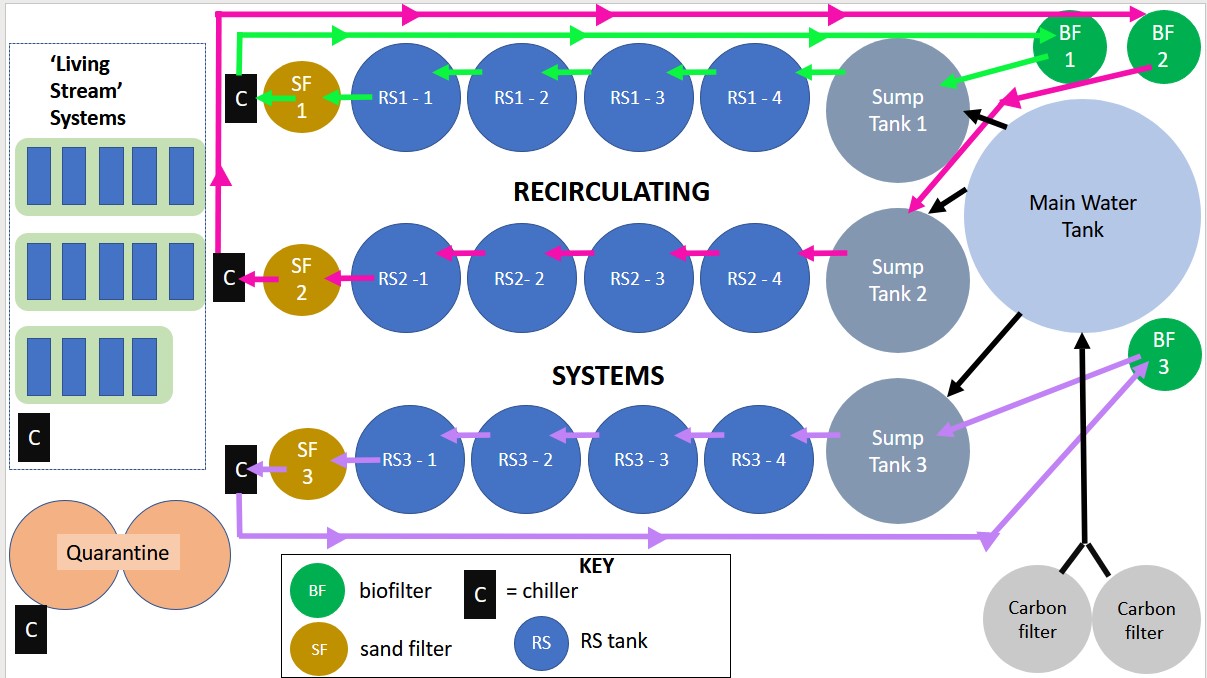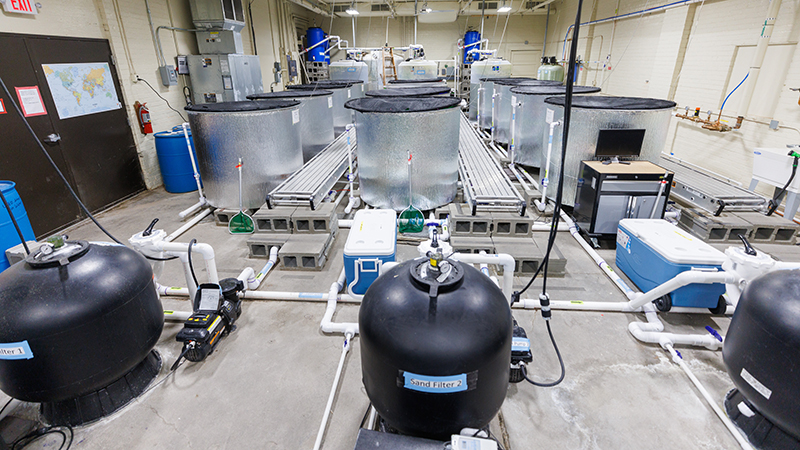About the Lab Design
The ABC lab utilizes the City of Lincoln’s water supply, double filtered through custom carbon filters to remove chlorine and chloramines. After carbon filtration, water is stored in a main reservoir before routing into recirculating systems. Once water enters a recirculating system, it runs through a mechanical sand filter to remove suspended waste, a biological filter that facilitates the nitrogen cycle, and a UV light sterilizer to minimize pathogens. Water returns to a dedicated sump and is gravity fed back into the system.
The lab houses three separate recirculating systems, each equipped with dedicated filtration and temperature controls and four 350-gallon capacity circular tanks. Within each system, all tanks can also be isolated to operate as static units.
The lab also houses three additional ‘living stream’ systems designed for small-bodied species. Each system is equipped with four or five 10-gallon tanks. In these systems, each tank’s water supply and filtration are static. Water is supplied manually from the lab’s main reservoir, and drop-in filters provide biological and mechanical filtration. Temperature is controlled for the entire system with a flow through water bath.
Additionally, the lab also offers a 24-gallon Loligo swim tunnel respirometer that can be utilized to measure physiology, energetics, behavior, biomechanics and kinematics of swimming fish.
Supplemental fish holding tanks include two 500-gallon circular tanks and two 100-gallon stock tanks.


Interested in utilizing the ABC lab for your research?
Facilities are available on a first come, first served basis. Check here for availability and usage requirements.